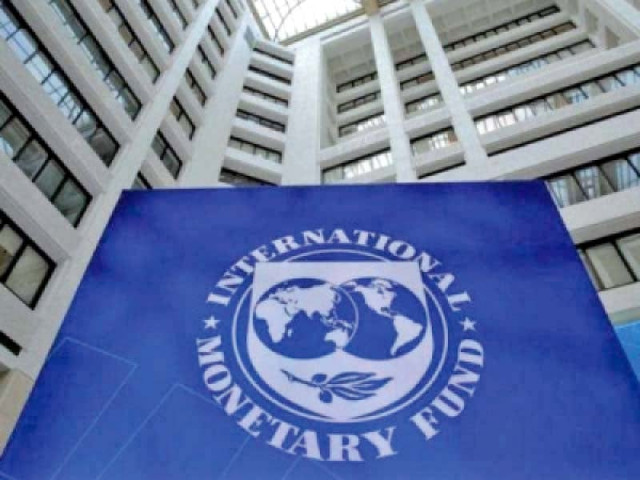IMF asks Pakistan to arrange $8b
Increases demand for additional financing to ensure debt repayment

In yet another turn that has further eroded chances for revival of the $6.5 billion bailout package, the International Monetary Fund (IMF) has asked Pakistan to now arrange $8 billion in fresh loans to back the external debt repayments during the next seven months.
The IMF’s demand to seek its approval on the upcoming budget for fiscal year 2023-24 has also not been met yet, further minimising the prospects of an early completion of the pending 9th review of the Extended Fund Facility (EFF), according to the government sources.
Sources say that the IMF has raised the demand for additional financing from an earlier unmet condition of $6 billion to $8 billion aimed at ensuring debt repayments coming up for the May-December 2023 period.
The lender has worked out the $8 billion needs by considering all projected inflows and outflows for this period.
Pakistan, however, has not accepted the new additional financing demand on the grounds that the Fund’s current programme will end in June 2023 and it should not put conditions beyond the programme period.
In February this year, the IMF had asked Pakistan to arrange $6 billion in fresh loans, excluding rollovers and refinancing to meet debt repayments until June 2023 and to stop the further depletion of foreign exchange reserves. Due to a delay in arranging these funds, the 9th programme review worth $1.2 billion remains incomplete.
On Monday, Finance Minister Ishaq Dar told the executive director of the IMF that Pakistan had met all the prior actions. Saudi Arabia has promised to give $2 billion while the United Arab Emirates has committed $1 billion in fresh loans.
According to the sources, the finance minister informed the executive director that the remaining $3 billion can only be arranged once the IMF announces staff-level agreement and the board approves the ninth review along with the $1.2 billion tranche.
The IMF resident representative did not respond to a query about whether Pakistan needs to arrange $8 billion from now until December this year to meet external debt repayment requirements.
In a scheduled press conference on Thursday, IMF spokesperson Julie Kozack, said Pakistan needed “significant additional financing” to successfully complete the ninth review. She said the economy was facing stagflation, had very large financing needs and had also been affected by a series of shocks, including severe flooding.
Obtaining commitments of “significant additional financing” is essential before the IMF approves the release of pending bailout funds that are crucial for Pakistan to resolve an acute balance of payments crisis, according to the IMF spokeswoman.
Sources have said that the IMF’s focus is now more on ensuring that Pakistan does not default by arranging funds to the extent of the external debt repayments. It is no longer emphasising on increasing the extremely low foreign exchange reserves.
Dar also said on Thursday that Pakistan would not default on any foreign liability, with or without an IMF programme. He said Pakistan had fulfilled all the prior actions of the IMF and it was now up to the lender to sign the agreement.
The finance minister argued that the delay in the IMF deal should not be linked to default.
“Pakistan will not default whether there is an IMF programme or no programme,” he asserted. He went on to say that additional tough decisions could not be taken at this stage.
Dar said that suspicions were being created as if to say that Pakistan is going to default on its international payments. He said an international rating agency talked about Pakistan’s $3.7 billion external payments due before June 30 and when he responded to the situation with a clarification, another rating agency came up with an assertion the next day that Pakistan would not be able to meet its foreign obligations from July to December.
The foreign exchange reserves held by the State Bank of Pakistan have fallen to $4.4billion.
The government has been trying to avoid default by putting the brakes on imports, as its debt-related financial inflows have almost dried up due to a delay in reaching a deal with the IMF.
Sources say that the government is also not inclined in meeting the IMF’s demand of sharing a draft of the next year’s budget. Senior officials from the finance ministry said that the draft budget can only be shared if the IMF is willing to merge the 10th review and give more than $1.2 billion financing tranche.
Of the $6.5 billion, $2.6 billion still remain undisbursed despite a nine-month extension in the IMF programme.
Published in The Express Tribune, May 13th, 2023.
Like Business on Facebook, follow @TribuneBiz on Twitter to stay informed and join in the conversation.



















COMMENTS
Comments are moderated and generally will be posted if they are on-topic and not abusive.
For more information, please see our Comments FAQ